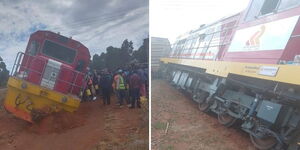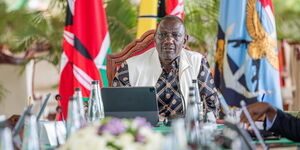The government has seemingly bowed to pressure generated by an NTV exposé dubbed, The White Alert, that raised alarm over high aflatoxin levels in maize meal and milk products in circulation.
The report that was aired on Sunday, November 10, which the broadcaster indicated had taken a considerable amount of time to prepare, unearthed substandard products in the market that contained aflatoxins linked to cancer.
Cabinet secretaries Mwangi Kiunjuri (Agriculture) and Peter Munya (Trade), according to The Standard, revealed on Wednesday, November 13, that a committee had been constituted to probe the aflatoxins in Kenya's staple foods after an outcry from Kenyans.
Addressing two parliamentary committees, the CSs disclosed that the committee probing aflatoxins was constituted of experts from different fields.
Kiunjuri further explained that the experts had been sent to the United States to carry out studies on the issue.
He further faulted industry players for the poor handling of harvested cereals explaining that the National Cereals and Produce Board (NCPB) could only handle four million bags yet the nation had a demand of 52 million.
The investigative report compiled by Dennis Okari also laid bare how elements within Parliament were privy to a shocking poisoned maize scandal.
Former Member of Parliament for Naivasha Constituency, John Mututho, claimed to have personally witnessed legislators receiving loads of cash from within Parliament to quash the Report on Food Security Status and the Maize Shortage in the country that was tabled at the National Assembly on April 2009.
"In fact, they received bribes inside Parliament itself and when I was debating that evening I could see one gentleman with a big bag up there in the speaker's gallery dishing out cash.
"Eventually I was alone debating against the likes of Orengo, the like of Raila, the likes of Ntimama, and all the others, 72 of them against me, all the other legislators needed to pass a vote had simply disappeared," he claimed.
On Saturday, November 9, a day before the report aired, the Kenya Bureau of Standards (Kebs) banned the sale of five popular brands of maize Including Dola, Kifaru and Starehe.












